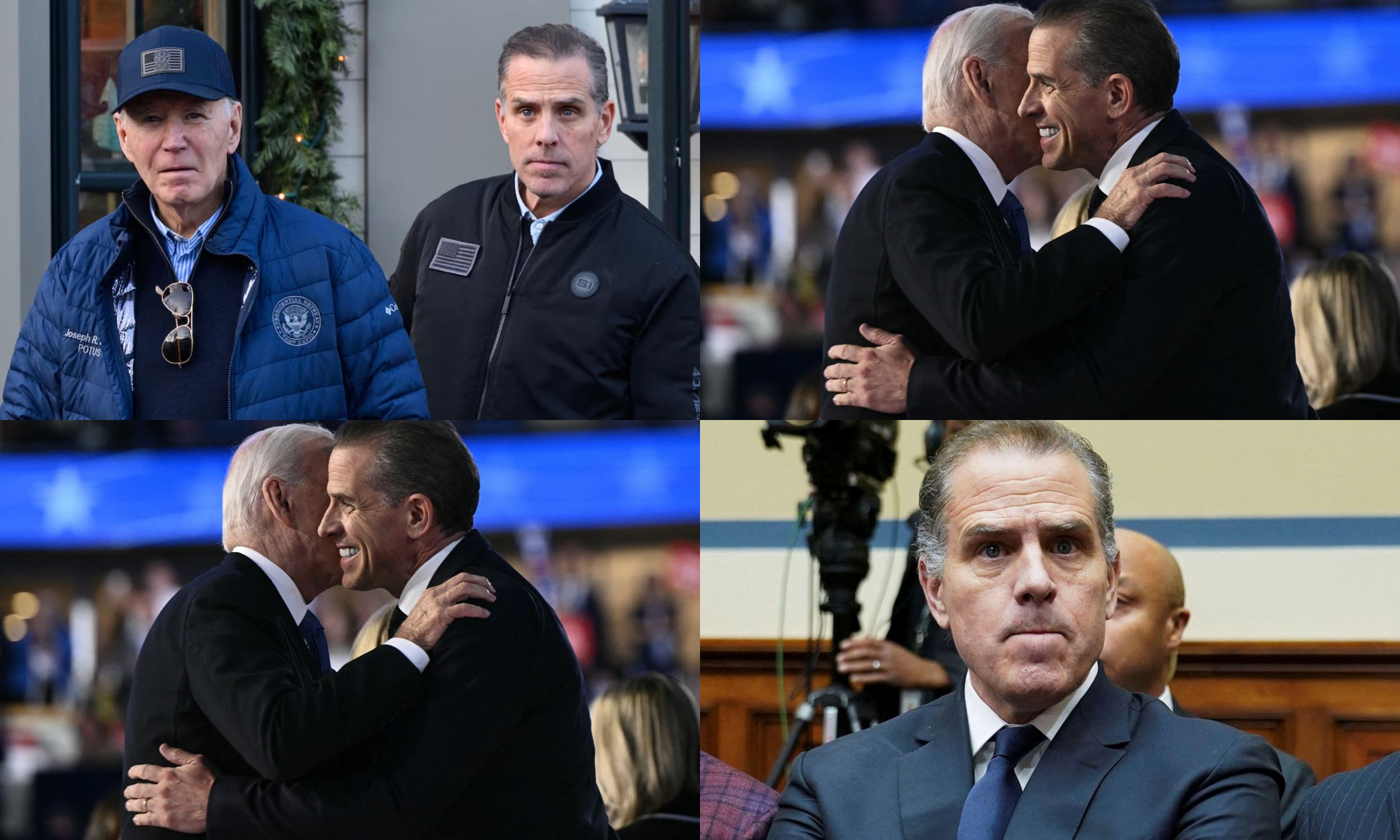In his last full month in office, President Biden’s decision to pardon his son Hunter is casting a shadow over his legacy. As he prepares to leave the presidency, Biden concludes his term with legislative accomplishments, a resilient economy, and the successful management of a major pandemic.
However, his refusal to abandon his reelection campaign until late July, coupled with the recent pardon for Hunter Biden—despite earlier assurances that he would not grant one—has raised concerns about the Biden presidency.

Alexis Coe, a presidential historian and biographer, remarked on the situation: “It’s been astonishing to watch Biden cast a long shadow over his many achievements in office simply by acting as many presidents do, which is from a place of an outsized ego.”
She suggested that if Biden had chosen to step down after the midterms on a positive note, the narrative surrounding his presidency would have remained more favorable. “He’s had a lifelong record of public service. Now almost everything that he has accomplished will be crammed into the beginning, and the pardon will be one of many things that dominates the rest. I would love to be wrong about that,” Coe added.
Unexpectedly, the president announced on a late Sunday before his weeklong trip to Africa that he was granting a complete pardon to Hunter Biden, which absolved him of federal gun and tax charges. This surprising move sent shockwaves through the political landscape, provoking criticism from both Republicans and some Democrats alike.
Detractors highlighted Biden’s prior statements indicating that a pardon was not an option and expressed concern that he had undermined the rule of law, a principle he emphasized throughout his presidency.
Timothy Naftali, a presidential historian at Columbia University, noted, “It’s just unfortunate that the president, in his attempt to protect his son, has left his own legacy so vulnerable.” He suggested that this action feeds into a broader cynicism regarding politics and national institutions, which affects both Republicans and some Democrats.
Senator Michael Bennet (D-Colo.) also expressed his disapproval, stating on social media that the decision “put personal interest ahead of duty and further erodes Americans’ faith that the justice system is fair and equal for all.”
Elie Honig, a former U.S. attorney and current CNN legal analyst, commented that the pardon could negatively impact Biden’s legacy, even while recognizing the argument that Hunter Biden faced differential treatment due to his family name.
“Let’s be clear here, he [President Biden] lied to us for a long time. He said categorically, ‘I will not pardon my own son,’” Honig noted, criticizing the president for contradicting his previous stance on the issue.
In his Sunday statement, Biden claimed that Hunter would not have faced the gun charges had he not shared the president’s last name and accused political motivations of influencing the case against his son.
He voiced concerns about the incoming Trump administration and a GOP-controlled Congress targeting Hunter further, especially after President-elect Trump signaled intentions to appoint loyalist Kash Patel to lead the FBI, who has promised to pursue those perceived as adversaries of Trump. “In trying to break Hunter, they’ve tried to break me — and there’s no reason to believe it will stop here,” Biden declared. “Enough is enough.”
Throughout Hunter Biden’s legal challenges, Biden and his advisors consistently asserted that he would not pardon his son, including a statement made as recently as November 7, after Trump secured a second term.
White House press secretary Karine Jean-Pierre conveyed to reporters aboard Air Force One that Biden “wrestled” with the decision and experienced inner conflict. “Two things could be true,” Jean-Pierre explained. “The president does believe in the justice system and the Department of Justice. And he also believes his son was singled out politically.”
Jean-Pierre also referenced support for Biden’s decision from other legal experts, including former Attorney General Eric Holder, who deemed the pardon “warranted.” Holder remarked on social media that “Had his name been Joe Smith the resolution would have been – fundamentally and more fairly – a declination.”
Others pointed out that Trump had previously expressed willingness to consider a pardon for Hunter Biden when asked about the possibility in late October, with former South Carolina state lawmaker Bakari Sellers commenting, “Trump plays by no rules. Abuses the law. He would’ve pardoned Hunter and called you a coward for not doing it.”
This pardon comes at the end of a politically challenging year for Biden. A disastrous debate performance in June led to mounting pressure from Democrats regarding whether he should withdraw from the race.
Ultimately, he concluded his reelection campaign in late July, leaving Vice President Harris with just over 100 days to prepare for a campaign against Trump, which resulted in a defeat in November. Many Democrats pointed fingers at Biden for allegedly setting Harris up for failure by running for a second term despite concerns about his age.
Despite these challenges, some analysts caution against assuming that the pardon will define Biden’s presidency. His legislative victories, including the Inflation Reduction Act and the CHIPS and Science Act, are likely to yield long-term benefits. Additionally, his efforts to rebuild international alliances post-Trump are seen as remarkable.
Political historian Matt Dallek stated, “Even though he didn’t stop Trump from returning to power, he did defeat Trump. He did stand up for the rule of law. And he did— for most of his presidency— attempt to restore trust and faith in the electoral process.”
Dallek added that Biden may be remembered as the last president of the post-World War II era who believed in international alliances and the role of America as a global leader, suggesting that the pardon would not overshadow his commitment to democratic principles.
